China in IOR: ‘peaceful rise’ no more
China has expanded its presence in the Indian Ocean Region. President Xi Jinping has abandoned Deng Xiaoping’s conciliatory posture for an aggressive, money-fuelled search for super power status
 Courtesy: Western Naval Command
Courtesy: Western Naval Command
China has expanded its presence in the Indian Ocean Region. President Xi Jinping has abandoned Deng Xiaoping’s conciliatory posture for an aggressive, money-fuelled search for super power status
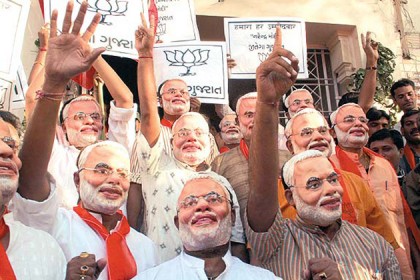 Courtesy: Narendramodi.in
Courtesy: Narendramodi.in
Narendra Modi’s landslide victory in India's 2014 general elections, despite his hardline nationalist image, was viewed as a localised phenomenon. But two years later, voters across the world from Europe to Philippines seem to be tilting towards leaders with the same nationalist tag.
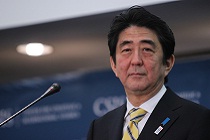 Courtesy: CSIS/Flickr
Courtesy: CSIS/Flickr
After winning control of the legislature on July 21, Japanese Prime Minister Shinzo Abe has plans to alter the Constitution. In ways that could lead to a rearmed Japan, with a large defence force. What will be the consequences of this new face of Japan?
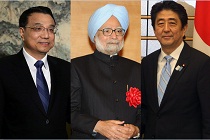 Courtesy: Ministry of External Affairs, India
Courtesy: Ministry of External Affairs, India
While the recent India-Japan Joint Statement contains significant breakthroughs, the China-Pakistan Joint Statement reveals the absence of warmth between India and China. With the current flurry of bilateral exchanges, India is fine-tuning its approach to emerging regional realities, as are others.
 Courtesy: nazeah/Wikimediacommons - Ramesh Lalwani/Flickr
Courtesy: nazeah/Wikimediacommons - Ramesh Lalwani/Flickr
The year 2011 saw various events - the Arab Spring, anti- corruption protests, Europe's sovereign debt crisis - transform countries and reshape the world order. Gateway House takes a look at what these events mean for India, and presents India's top foreign policy cheers and jeers for the year.

Amidst myriad country groupings that already exist – BRICS, IBSA, APEC, SCO and many others – a new initiative in the Pacific is looking to integrate more powerful countries to form a multilateral free trade agreement – the Trans Pacific Partnership. How important is this towards the reshaping of trade and power?
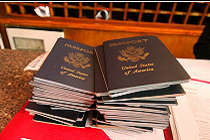 Courtesy: FourthFloor/Flickr
Courtesy: FourthFloor/Flickr
Despite their economic downturns, domestic tensions keep developed countries from embracing the revitalizing potential of foreign workers. Ambassador Neelam Deo argues that India should continue to leverage its history of diversity and capitalize on a world more open to the free flow of goods and services.
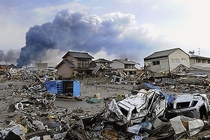 Courtesy: Generationbass.com/Flickr
Courtesy: Generationbass.com/Flickr
The impact of the earthquake and subsequent tsunami on Japan could be graver than imagined but it’s an opportunity for Prime Minister Kan to take decisive action and strengthen his administration.
 Courtesy: Durova/Wikipedia
Courtesy: Durova/Wikipedia
Japan has always been the quickest to extend relief to any country facing a humanitarian crisis. In the wake of its cataclysmic earthquake and subsequent tsunami, the former Indian Ambassador to Japan hopes that India can extend the same measure of compassion to a country that is celebrated for its resurgence.